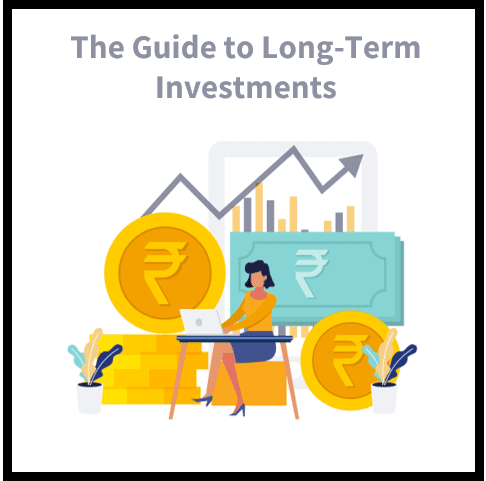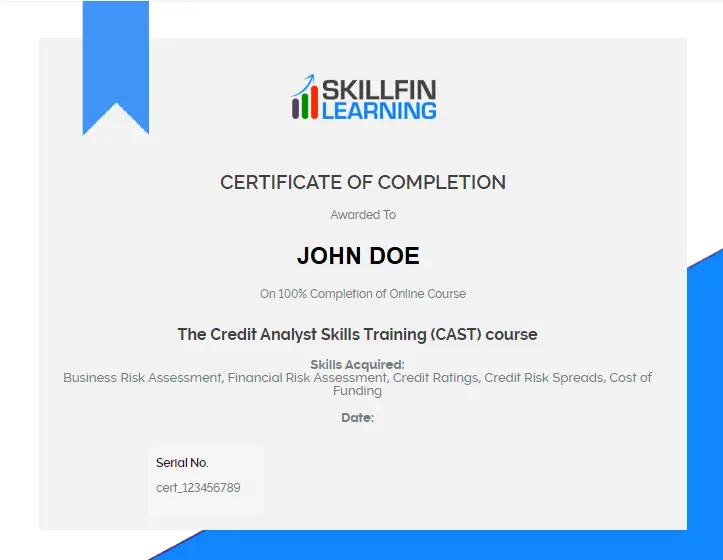Long-term investing is an investment strategy that focuses on capital appreciation as opposed to income. It’s also not about how much time you have until your retirement; it’s about whether or not you have a plan for how you are going to use your money after you retire. However, most people are cautious when they hear the word “investment.” These days, anyone who mentions investing probably wants to sell you something that is probably too good to be true, right? We don’t blame you if this is what you think. The world of investments has been filled with scams and fraudsters for decades. There are plenty of great long-term investment options out there, however, and we are here to help highlight a few of them so that you can begin planning for your future financial needs and goals.
What is a Long-Term Investment?
A long-term investment is one that is held for more than one year, with the hope that it will produce capital gains (instead of income). Higher-risk assets, such as stocks and real estate, are commonly classified as long-term investments because their values can fluctuate greatly over time. Long-term investments are often used to grow assets and build wealth.
While you may not realize a return on your investment for several years, you can use these time frames to your advantage by diversifying your risk. Long-term investments are by nature more speculative, but they also have the potential to grow exponentially over time. The challenge is to somehow limit your losses when the market goes down.
Types of Long-Term Investments
There are many different types of long-term investments that you can choose from, including real estate, stocks and bonds, commodities, and even peer-to-peer lending. Investing in stocks and bonds is always a good idea, as these are two of the most common ways to invest for the long term. Stock investments, however, are likely to fluctuate in value as companies and the markets are always changing.
Bond investments, on the other hand, are more stable and predictable, which is why most financial experts suggest that beginners start with bonds. Real estate is another great long-term investment, especially for those who want to diversify their portfolios with something a bit more tangible. As with any investment, however, you’ll need to make sure that you’re prepared to take on some risk and that you’re ready to put some money down up front.
Mutual Funds
A mutual fund (MF) is a type of investment that allows you to pool your money together with that of other investors and purchase shares in a fund manager who invests in a variety of stocks and other securities. Mutual funds are a great way to start investing because they are relatively easy to set up and manage, you can invest with as little as a few hundred dollars, and they offer a wide range of investment opportunities.
There are several different types of mutual funds, with varying levels of risk. If you’re looking to invest for the long term, the best types of mutual funds to consider are stock funds and balanced funds. Stock funds invest in stocks that can be highly volatile and risky, but can also make you a lot of money if you’re lucky enough for the stocks to go up. Balanced funds, on the other hand, are a type of fund that is composed of a combination of stocks and bonds. This combination helps to reduce risk while still offering a decent amount of growth potential.
Real Estate Investment Trusts (REITs)
Real estate investment trusts (REITs) are trusts that purchase and manage commercial real estate, such as office buildings, hotels, and malls. Unlike investing in a single property, however, REITs offer you the chance to diversify your risk via a mutual fund-type structure. In addition to minimizing risk, REITs also offer an above-average dividend yield.
This means that you are likely to receive a check from the REIT’s company from time to time, which is a great way to receive a bit of passive income.
Exchange Traded Funds (ETFs)
An ETF is often referred to as a “mutual fund on steroids.” It is a type of investment that allows you to own a portion of a basket of stocks. ETFs are actively managed funds that are bought and sold just like stocks. They are usually pretty diversified and offer low management fees.
ETFs are a great choice for long-term investments thanks to the low-cost structure that allows funds to run at a profit while keeping costs low for the investor. The best ETF funds for long-term investing are usually those that track broad stock indexes, such as the S&P 500, and offer a low turnover rate, which means that they don’t buy and sell stocks very often. This helps to minimize trading costs and risk.
Commodity ETFs
A commodity ETF is a type of fund that holds a basket of commodities, such as gold, oil, or natural gas, that can be traded and bought and sold just like a stock. Commodity ETFs are a type of index fund, which means that they aim to reproduce the returns and risks of a specific market segment.
Commodity ETFs are a good choice for long-term investments because they are low-risk, low-cost funds that are meant to track the overall commodity market.
Peer to Peer Lending
Peer-to-peer (P2P) lending is a type of online lending in which investors can provide loans to individuals and businesses via online “loan shops.” The loan shops then distribute the funds among the borrowers according to their individual terms and interest rates.
The interest rates vary depending on the risk of the loan and range from 5% to 10% or higher. P2P lending is a great option for long-term investments because the loans are set up with long terms.
This means you could have a loan for several years, and the interest you receive is likely to outpace the interest you would earn in a savings account. When investing in P2P lending, you should be sure to choose several loans with varying terms and interest rates and be prepared to wait for your money to grow.
Why You Should Invest for the Long Term
Long-term investing allows you to take advantage of compounding, which is the process that occurs when money earns interest and then the interest is added to the original amount, resulting in increased earnings. This is a positive feedback loop that can only occur over a long period of time.
For example, by investing $1,000 today, you will likely earn a small return on that initial amount, which will then be reinvested into the original investment and generate even more earnings. After 10 years, that initial $1,000 investment could be worth significantly more than if you had withdrawn the money and spent it today. The earnings from that initial $1,000 could even be enough to support your standard of living in retirement.
Long-term Investment Strategies
If you’re looking to invest for the long term, you should keep in mind that shorter-term investments are likely to offer a higher rate of return than longer-term investments. This doesn’t mean that you should avoid long-term investments, however. In fact, there’s a good chance that you will see a significant fall in stock prices in the near future as the economy slows down.
This could be a good time to invest in long-term products and earn a higher rate of return over the next few years. There are many different long-term investment strategies that you can utilize, including dollar-cost averaging (DCA), asset allocation, and indexing. Dollar-cost averaging (DCA) is a strategy that involves investing the same amount of money in various investments on a regular basis.
This helps to reduce the risk of investing all at once, since you’ll be buying when shares are low and selling when they are high. Asset allocation is simply the process of deciding what percentage of your investment portfolio should be focused on each type of asset class.
Indexing is investing in an index fund that tracks a particular market index, such as the S&P 500. Index funds are often the best choice for long-term investments because they are managed passively, which means that the fund manager doesn’t actively trade or try to beat the market.






24 thoughts on “The Guide to Long-Term Investments: How to Choose the Best One for You”
[…] analysis is a critical tool for investors. It helps them make informed investment decisions by providing them with an in-depth analysis of a company’s financial health and […]
[…] A financial consultant can provide you with valuable insights and help you develop a personalized investment strategy based on your financial goals, risk tolerance, and time […]
[…] over time due to portfolio rebalancing or changes in asset allocation. As investors adjust their long term investments strategies or reallocate assets in response to changing market conditions or investment objectives, […]
… [Trackback]
[…] Read More on that Topic: skillfine.com/long-term-investments-guide/ […]
… [Trackback]
[…] Read More on to that Topic: skillfine.com/long-term-investments-guide/ […]
… [Trackback]
[…] Read More Info here to that Topic: skillfine.com/long-term-investments-guide/ […]
… [Trackback]
[…] Read More to that Topic: skillfine.com/long-term-investments-guide/ […]
… [Trackback]
[…] Here you will find 67336 additional Info on that Topic: skillfine.com/long-term-investments-guide/ […]
… [Trackback]
[…] Read More here on that Topic: skillfine.com/long-term-investments-guide/ […]
… [Trackback]
[…] Info to that Topic: skillfine.com/long-term-investments-guide/ […]
… [Trackback]
[…] Find More on that Topic: skillfine.com/long-term-investments-guide/ […]
… [Trackback]
[…] Find More to that Topic: skillfine.com/long-term-investments-guide/ […]
… [Trackback]
[…] Find More here on that Topic: skillfine.com/long-term-investments-guide/ […]
… [Trackback]
[…] Here you can find 35366 more Information to that Topic: skillfine.com/long-term-investments-guide/ […]
… [Trackback]
[…] Read More here on that Topic: skillfine.com/long-term-investments-guide/ […]
… [Trackback]
[…] Info on that Topic: skillfine.com/long-term-investments-guide/ […]
Your article helped me a lot, is there any more related content? Thanks!
Hello! I could have sworn I’ve been to this blog before but after browsing through some of the post I realized it’s new to me. Anyways, I’m definitely happy I found it and I’ll be book-marking and checking back frequently!
Can you be more specific about the content of your article? After reading it, I still have some doubts. Hope you can help me.
I don’t think the title of your article matches the content lol. Just kidding, mainly because I had some doubts after reading the article.
Your article helped me a lot, is there any more related content? Thanks!
Can you be more specific about the content of your article? After reading it, I still have some doubts. Hope you can help me.
274021 29764Write more, thats all I have to say. Literally, it seems as though you relied on the video to make your point. You clearly know what youre talking about, why waste your intelligence on just posting videos to your site when you could be giving us something enlightening to read? 241176
996096 511347Excellent post, Im looking forward to hear a lot more from you!! 717271